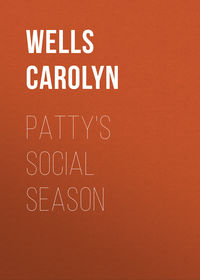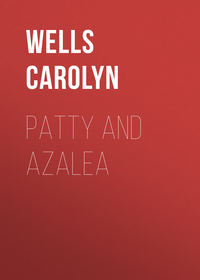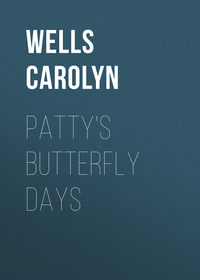
"He was of uncertain temper, I understand."
"Well, it could hardly be called uncertain." Mr. Whitaker smiled a little. "On the contrary, his temper was certain to be bad. He was an inveterate scold, and sometimes would fly into a most ungovernable rage over nothing at all. But this was not my affair; he always paid his rent, – though only under protest, and after numerous requests."
"When you saw him yesterday, was he ill-tempered?"
"Very much so. I would say unusually so, except that he was usually as cross as any man could be."
"What was he cross about?"
"Everything and nothing. He railed at the government, the weather, his lawyer, his niece, – and in fact, spoke angrily upon any subject that was mentioned between us."
"Then you can tell us nothing, Mr. Whitaker, that will throw any light upon the crime that has been committed in your house?"
"Nothing at all."
"Would it be possible for a marauder or intruder to get in during the night?"
"Into the house, yes. The front doors are open until midnight. Each tenant is supposed to safeguard his own apartment."
"And you know of no questionable person who entered the house last night?"
"Certainly not. I have no reason to notice those who come or go. The elevator boy might tell you."
Mr. Whitaker was dismissed, and the elevator boy was sent for. He was rather a clever-looking young fellow of about seventeen, and his face, though impudent, was shrewd and intelligent.
"Samuel McGuire, me name is," he announced, in response to the Coroner's question; "but the fellers call me Solomon, cos I know mor'n they do. I studies and reads every chance I gets, and they jes' loafs 'round."
"Well, Samuel, what can you tell us of Mr. Pembroke?"
"Nuttin good. But then they ain't much to tell. He never trun himself loose outen his own door; but I didn't mind his bein' canned, cos I knew he couldn't pry himself loose from a tip, any way. So I never seen him since the day he came; but gee, I've often heard him! Say, the Mauretoonia's fog-horn ain't got nothin' on him! Tain't no silent treatment he gives that niece of his'n! Nur that classy brunette soivant, neither!"
"He was not even kindly-spoken to his niece, then?"
"I guess no! Gee, the foist time I seen that skoit, I t'ought I'd been shot in the eye wit' a magazine cover! An' she's as daisy actin' as she is lookin'. I sure admire Miss Pembroke!"
This was not the kind of information Mr. Ross wanted, but young McGuire rolled it forth so rapidly, and with such graphic facial expression that his audience listened, uninterrupting.
"That's enough, McGuire," said Mr. Ross, sternly; "please confine your speech to simple and direct answers to my questions."
"Sure," agreed the boy, grinning. "But I thought you wanted me to tell you all what I was wise to of the family's doin's."
"What I want to know especially, is, whether any one came into the house last evening, or late last night, who was a stranger to you?"
"Well, no; I ain't seen no Rube divin' into my cage, wot looks suspicionary. But then, you see, Mr. Coroner, I ain't on the night shift. This week I goes off at six P. M. and toddles myself off to a tremblin' scenery show."
"Then you're not the elevator boy we want, at all," said Mr. Ross, greatly annoyed at this loss of time.
"Be-lieve me, I ain't! But I'm glad to add it against brother Pembroke. He never left his rooms, but, gee! he didn't have to, fer me to hear him bally-hooin'! Every time I passed this floor, 'most, he wuz a handin' it out to the young lady good an' plenty!"
McGuire was excused, and being loath to leave the room, he was materially assisted by Inspector Crawford.
Though not an attractive specimen of his class, and though his evidence was unimportant, he had at least helped to prove the irascibility of the late Mr. Pembroke, and the fact that his ugly temper was often vented upon his niece.
As I learned all this, I felt more than ever glad that Janet was at last freed from this tyrant. Indeed, my attention was only half given to the business in hand. My thoughts continually wandered to the girl who had, all unconsciously, twined herself around my heart. I found myself wondering where she would go when this was all over; how soon I could cultivate her acquaintance; and if – in the future – I could at last win her for my own. It was my first infatuation with any woman, and I gave myself up to it unreservedly, while my soul thrilled with hopes of what might some time be. To be sure, Miss Pembroke had not so much as glanced at me with other than the most formal politeness, such as she might show to any new acquaintance. But I would not let this discourage me. Because it was love at first sight on my side was no reason why it should be on hers, so I only determined to win her, if possible, and to be careful that she should not yet discover my feelings toward herself.
From these rose-colored dreams I was suddenly recalled to the dreadful realities of the occasion by hearing myself summoned as a witness.
I took the stand, hoping that some chance word or tone of my otherwise unimportant evidence might at least convince Miss Pembroke of my friendly interest in her and her affairs.
VII
I GIVE EVIDENCE
"Your name," said the Coroner to me.
"Otis Landon."
"You live in this house?"
"Yes, I live in the apartment across the hall, on this same floor. It is a duplicate of this apartment."
"Please tell in your own words," said Mr. Ross, "exactly what you know of this matter."
And so I told my story. "I am a lawyer, and a bachelor," I said. "My widowed sister, Mrs. Mulford, keeps house for me. As we sat at breakfast this morning the door-bell rang. Knowing from the hour – just about eight o'clock – that it was probably the hall boy with the mail, I opened the door myself, and took the letters from him. As I stood a moment, carelessly running over the mail, the boy pressed the button at the opposite apartment – the one where we now are. The colored servant came to the door, and though she unlatched it at once, it was held by a chain."
Just here Inspector Crawford interrupted me.
"The night-chain was on, you say?"
"Yes," I answered; "I heard the colored woman's voice exclaiming that she always forgot to remove the night-chain before opening the door; so she reclosed the door, unfastened the chain, and opened the door again. She then took the letters and went back to the apartment. I returned to my own breakfast. Perhaps half an hour later I started for my office. As I was waiting for the elevator to come up, my sister stood with me, chatting. When the elevator did arrive I saw a gentleman in it, who, I have since learned, is Doctor Masterson. As the car reached our floor Miss Pembroke rushed from her own apartment to meet the doctor, exclaiming that her uncle was ill. My sister and I were much concerned, and offered our assistance. A few moments later Doctor Masterson came and asked us to come over here, as Mr. Pembroke was dead and Miss Pembroke had fainted. We came at once, and have endeavored to do anything we could to help."
For some reason, Doctor Masterson seemed disturbed at my remarks. Why, I could not guess, for I had told the exact truth, and it seemed to me to have little bearing on the circumstances of the old man's death. On the other hand, what I had said seemed to give satisfaction to the Coroner. He nodded his head affirmatively several times, and it was plain to be seen that my testimony corroborated, at least did not contradict some already formed theory of his own.
After a slight pause, while he seemed to weigh in his mind the evidence I had given, he resumed his questioning.
"I am told Mr. Landon, that you searched Mr. Pembroke's bedroom for possible clues. Did you find any?"
"I am not sure," I replied; "in a room that one has never seen before, it is difficult to know what belongs there and what does not. However I picked up a few articles, which, though they may be informative, are equally likely to be of no importance to us in our search."
I offered first in evidence the memorandum of money and the rubber band still around it. The slight crumpling of the paper, seemed to show a hasty removal of the money, – if money had been enclosed.
"This seems to me to be of decided importance," commented Mr. Ross; "indeed, unless some member of the household can throw light on the matter, I shall conclude that a sum of money was stolen from Mr. Pembroke, and that the robbery constituted the motive for either previous or subsequent murder."
This seemed to me both rational and logical, and I waited with interest the next questions.
Mr. Ross first addressed Miss Pembroke.
"Do you know anything concerning this money?" he inquired, simply.
Janet Pembroke was sitting on a sofa, next to Laura. As, with the exception of the colored servant, they were the only women present, Laura assumed the attitude of chaperon and protector to the young girl. And it was doubtless due to my sister's sympathy and support, that Miss Pembroke was preserving a calm demeanor. But at the Coroner's question, she became greatly agitated. She trembled, and her fingers grasped nervously at Laura's arm as she stammered a reply.
"I – I – I know that Uncle Robert had a large sum of money in his possession yesterday."
"Where did he get it?"
"His lawyer, Mr. Leroy, brought it to him night before last."
"Was it as much as ten thousand dollars, as this memorandum seems to indicate?"
"I – I – I think it was."
What was the matter with the girl? If she had stolen the money herself, she could not have acted more guiltily embarrassed. To me, the idea of theft in connection with Janet Pembroke was absurd, but I could readily see from the countenances of the men about me, that the situation impressed them quite otherwise.
"Was Mr. Pembroke in the habit of keeping such large sums of money in the house?"
"No; it was most unusual."
"How, then, did it happen in this instance?"
"I am not quite sure;" and now Miss Pembroke looked anxious and puzzled, rather than frightened, as she had appeared before, "I think he expected a man to come to see him, to whom he would pay the money."
"Do you know the name of this man?"
"It was, – no, – I do not."
I think no one present believed this statement. It was made with too much hesitation and uncertainty.
"Are you sure, Miss Pembroke that you do not know the name of the man for whom your uncle intended the money?"
The girl's uncertainty appeared to vanish. "I do not!" she cried; "my uncle was not in the habit of confiding to me his business matters. But he often spoke in loud tones, and quite unintentionally I overheard a few words between him and Mr. Leroy, which gave me the impression that he intended the money for some man who would soon call to receive it."
"Do you know anything concerning this money?" Mr. Ross then said, addressing his question to George Lawrence.
The young man had been sitting watching his cousin in silence. He seemed absorbed in deep thought and roused himself suddenly as the Coroner spoke to him.
"No," he said, with an air of detachment from the whole affair; "I know nothing at all of these matters. I saw my uncle for a few moments yesterday afternoon, but he said nothing to me about money, or his financial affairs of any sort."
"Did you see your uncle in his own room?" I asked, of Mr. Lawrence.
"Yes," he replied giving me a glance, which, though coldly polite, seemed to resent my interference. But I was not to be baffled in my intent.
"Was his desk open when you were there?" I went on.
"I didn't notice definitely, but it is usually open. Indeed, I think I have never seen it closed."
"And did you see a large roll of bills in it?" I relentlessly pursued.
"I did not; nor should I have remarked it if I had. If my uncle chose to be careless with his cash it was not my affair."
"It is possible the money may yet be found," observed the coroner; "Mr. Pembroke may have put it away more safely. Search must be made for it, but at present we will continue our verbal evidence. Mr. Landon, what else did you find in your search?"
"I found this time-table," I replied, feeling a little foolish as I gave it to the Coroner.
"H'm, local trains on the Lackawanna," he murmured, as he glanced at it; "Miss Pembroke, is this likely to have belonged to your uncle?"
Again the girl became agitated. "I think not," she said; "no, it couldn't have been his. Uncle Robert never went out anywhere. Why should he have a time-table?"
"Is it your own?"
"No; I have not travelled on that road for a long time, and have had no thought of doing so."
Then the Coroner turned to Charlotte. "Do you know anything about this?" he asked; "have you ever seen it before?"
"Laws, no!" replied the colored woman, rolling her eyes distractedly. "I nebber trabbels myself, and Marse Pembroke, he nebber trabbled outside de do'. And Miss Janet she ain't nebber been trabblin' since I'se been here – dat I knows on."
"Then it would seem," said Mr. Ross, "that this time-table must have been left in the room by some outsider. Do you know anything of it, Mr. Lawrence?"
"No; I rarely use time-tables. But it does not seem to me important. Leroy may have left it, he's always travelling about."
Immediately the time-table seemed to shrink into insignificance, and the Coroner tossed it aside and asked to see my next exhibit.
A little chagrined at the apparent unimportance of my clues, I produced the handkerchief.
"This lay on the foot of the bed," I said; "I noticed it only because it bears initials which are not those of Mr. Pembroke."
"W. S. G.," read the Coroner as he examined the corner of the handkerchief. "Do you recognize those initials, Miss Pembroke?"
"No;" and the girl's face this time expressed mere blank amazement; "I know of no one with those initials. It is a man's handkerchief?"
"Yes," replied the Coroner, holding up to view the large square of linen; "And it is of fine texture and dainty finish."
"And beautifully hand-embroidered," said Miss Pembroke, as she rose from her seat and took the handkerchief in her hand.
She seemed in a quite different mood now. Apparently the handkerchief had roused her curiosity. She turned to Charlotte with it, saying, "You've never seen this before, have you, Charlotte?"
"No, Miss Janet; I nebber seed dat hank'chif befo'. Dat's sure! It ain't Marse Pembroke's, nor it aint's Master George's, and dat's all de men dey is in dis fambly."
"It couldn't have been left by Mr. Leroy," went on Miss Pembroke, musingly; "I cannot explain it. It's a mystery to me."
She returned the handkerchief to the Coroner, and resumed her seat beside Laura.
"It would seem," said Mr. Ross, "that whoever left this handkerchief in Mr. Pembroke's room, was a man of refined tastes, – but we must defer definite assumption of that sort until after further inquiry. You have something else to show us, Mr. Landon?"
Without a word I handed him the two stubs of theatre tickets.
"National Theatre," he read. "Your uncle never went to the theatre, Miss Pembroke?" he inquired.
"Never," she answered, quietly.
"You sometimes go yourself?"
"Occasionally, yes. But I know nothing of those tickets. I have never been to the National Theatre."
I was glad to hear this, for the National Theatre, though entirely reputable, was of the Music Hall class, and it pleased me that Janet Pembroke did not incline to that type of entertainment.
In response to inquiries, Charlotte asserted volubly, and George Lawrence haughtily, that they knew nothing of these mysterious bits of pasteboard. The only inference was, then, that they had been dropped in Mr. Pembroke's room by some one who was calling on him recently.
And then, as a final offering to the mysterious accumulation of evidence, I handed to the Coroner the torn telegram I had found in the waste basket. It had been torn across but once, and was easily pieced together. The Coroner read it aloud:
"Expect me on Wednesday evening. Signed, J. S. Sent from East Lynnwood, New Jersey. H'm, that links it to the Lackawanna time-table, as East Lynnwood is on a branch of that road."
"Are you sure of that?" asked George Lawrence.
"No, I'm not sure," returned Mr. Ross; "but it's my impression that East Lynnwood is off that way, somewhere."
"I'm not sure, myself," said Lawrence, and no one present seemed to know where East Lynnwood was, and the time-table was only for stations on the main line, not to branches. I determined to look it up for myself as soon as the inquest was over, for surely these hints I had picked up must lead somewhere.
"Do you know who J. S. may be?" the Coroner asked of Miss Pembroke.
"No," she replied, briefly, but again I had a conviction that she was not speaking truthfully. The very vehemence with which she spoke seemed to me to betoken a desperate intention to hide the truth, but of this I could not be sure.
"But if your Uncle received a telegram, bidding him expect a caller last evening, would you not be likely to know about it?"
"Not necessarily," returned Miss Pembroke; "My Uncle never informed me of his business appointments or arrangements. But no one did call upon him last evening, of that I'm certain."
"The telegram may have been a blind," said one of the jurors, wagging his head sagaciously. He seemed to think he had said something exceedingly clever, but Coroner Ross paid no heed to him. Indeed the Coroner seemed to care little about material clues, and was anxious to continue his verbal inquiries.
After a few more questions, of no definite importance, I was excused, and my sister Laura was called to the stand.
Her evidence regarding the occurrences which led to our introduction on the scene, was practically an echo of my own, and consequently not of direct importance. The Coroner endeavored to learn from her something concerning the unpleasant relations between Mr. Pembroke and his niece, but though Laura had expressed herself often and frankly to me on the subject, she would say nothing in public concerning it. She declared that she was totally unacquainted with the Pembrokes, and had never spoken to Miss Janet until that morning, and had never been in their apartment before.
Of course she was soon excused, and next Charlotte, the colored servant, was called.
She responded in a state of terrified excitement. She was nervously loquacious, and Mr. Ross was obliged to command her to answer his questions as shortly as possible, and not dilate on them or express any opinions.
"At what hour did you rise?"
"'Bout seben, sah."
"Did you then prepare breakfast?"
"Yes, sah – bacon 'n' eggs, an' cereal, an' – "
"Never mind what the meal consisted of. Did you see any one before you served breakfast?"
"Only the hall boy, when I went to take the lettahs, sah."
"He rang the bell?"
"Yes, sah. He allus does. An' I dun gib de do' a yank, but dat ol' chain held it. I 'clar to goodness, I can't nebber 'member dat chain."
"Have you been with this household long?"
"I's been here six weeks, sah. But I was gwine to leave, any way. I couldn't stan' de way Mr. Pembroke called me names, sah. Miss Janet she's mighty nice lady, but de ol' massa he was too much fo' anybody."
VIII
AN AWFUL IMPLICATION
"Never mind your opinions of your employers," commanded the coroner sternly. "Simply answer my questions. What did you do with the letters?"
"I took 'em to Miss Janet."
"Is that your custom?"
"Yes, sah. She looks 'em ober, an' if dey's bills she doesn't gib 'em to Mr. Pembroke till after breakfast, sah."
"Where was Miss Pembroke when you gave her the mail?"
"In her own room, sah, jes' finishin' dressin'."
"What did you do next?"
"Den Miss Janet she tole me to knock on Mr. Pembroke's door, so he'd know breakfas' was ready. An' I did, but he didn't answer. Gen'ally he hollers at me when I knock. So I knock again an' again, an' when he don't holler out cross-like, I 'mos' know sumpin's wrong. So I went and tol' Miss Janet dat her uncle didn't answer back. An' she say: 'Oh, pshaw, he's asleep. Knock again.'"
"Did you do so?"
"Yes, sah. An' still he don't holler out ugly, like he always do. Den I got awful scart, an' I begged Miss Janet to go in his room. An' den she did. An' she scream out: 'Oh, Charlotte, uncle has had a stroke or sumpin! What shall we do?' An' I say: 'Oh, Miss Janet, send for de doctor.' An' she telephoned right away, an' bimeby he come."
"That will do," said Mr. Ross. "From that time on, we have had the history of events. But to go back to last night. Were you in the house last evening?"
"Yes, sah; dat is, I was, after nine o'clock. I went out befo' dat, but I come in sharp at nine, as Miss Janet had tole me to."
"There were no guests here when you returned?"
"No sah; no comp'ny. Miss Janet and her uncle – dey sat in de drawin' room, conversationin'."
The way Charlotte's eyes rolled about, and the quizzical look on her face, gave a distinct hint as to the nature of the conversation.
"Was the conversation of a pleasant sort?" the Coroner could not refrain from saying.
"Laws, no, sah! Marse Pembroke, he nebber conversed pleasantly, sah. He jes' nachelly scold Miss Janet always. Sometimes wusser dan odders, – but always scoldin'."
"What was he scolding her about?"
"I dunno. I jes' walked by de do', but I 'spect, – " Here Charlotte rolled her eyes toward Miss Pembroke, and the expression on that young lady's face, was so unmistakably a desire for Charlotte to cease her revelations, that I was not surprised at the colored woman's obedience to it.
"Go on," said Mr. Ross, "what do you suspect?"
"Nuffin, sah! nuffin 'tall."
"But you were about to say something?"
Again Charlotte rolled her eyes toward Miss Pembroke, and again the girl gave her a look which as plainly as words, forbade her to continue.
"Oh, laws," said Charlotte, easily, "den I 'spect old Marse Pembroke wuz jes' blowin' her up kase de bills wuz so big. He always said de bills wuz 'normous, even if dey wuz as small as anything. Dey wasn't no pleasin' dat man, no how."
Mr. Ross abandoned this line of query and began a fresh subject.
"Sit here," he said to Charlotte, indicating a seat where she could not see Miss Pembroke, who was directly behind her. "Now," he went on, "remember you are under oath to tell the truth, and see that you do it! Did you hear Mr. Pembroke or Miss Pembroke make any reference to a large sum of money?"
Charlotte said nothing. She twisted and turned in an endeavor to look round at Miss Pembroke, but the Coroner sternly ordered her to sit still and to answer the question. He added some remarks of a warning nature about punishment for untruthfulness, which so worked upon her half-ignorant mind that Charlotte became greatly agitated.
"Mus' I tell de trufe to you-all?" she gasped, in a stage whisper.
"Yes, and quickly," commanded Mr. Ross.
"Well, den, Miss Janet, she did ask Mr. Pembroke for a lot o' money."
"And he refused her?"
"Well, sah, he 'llowed as he'd gib it to her, ef she'd marry dat Leroy man."
At this point George Lawrence interposed.
"I cannot think it necessary," he said, "to allow the exposure of these personal matters, and especially through the medium of an ignorant servant."
I quite agreed with the speaker, and I admired the manly, dignified manner which accompanied his words. It seemed to me distinctly mean and petty to wrest these intimate revelations from the colored woman.
"In a case like this, Mr. Lawrence," the Coroner replied, "the law is justified in getting evidence from any reliable source. And I am convinced that this woman is telling us the truth."
"But truths that are irrelevant to the matter in hand," declared Lawrence. "Your investigation, I take it, is for the purpose of discovering the murderer of Mr. Robert Pembroke; and it surely cannot aid you to pry into the personal affairs of Miss Pembroke."
"It is quite possible," said the Coroner, coldly, "that Miss Pembroke's personal affairs may have some bearing on our quest. However I agree with you, to this extent. I think it will be preferable not to learn of these matters through the testimony of a menial. I think I should prefer to learn the truth from Miss Pembroke herself. Miss Pembroke, will you now give your evidence?"









